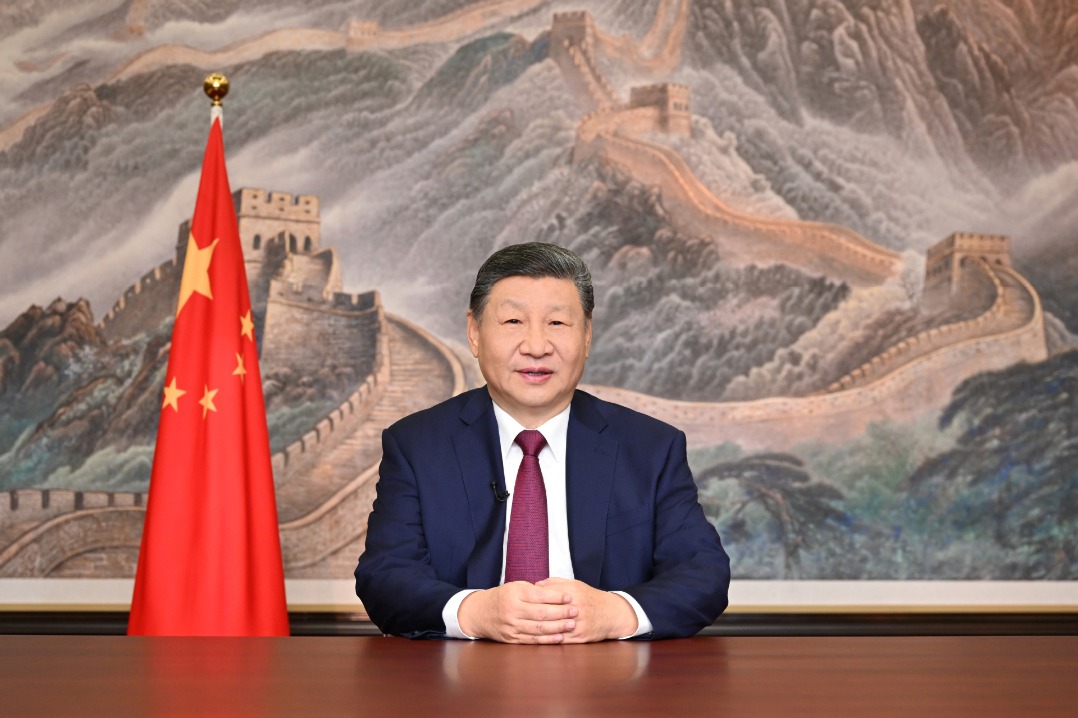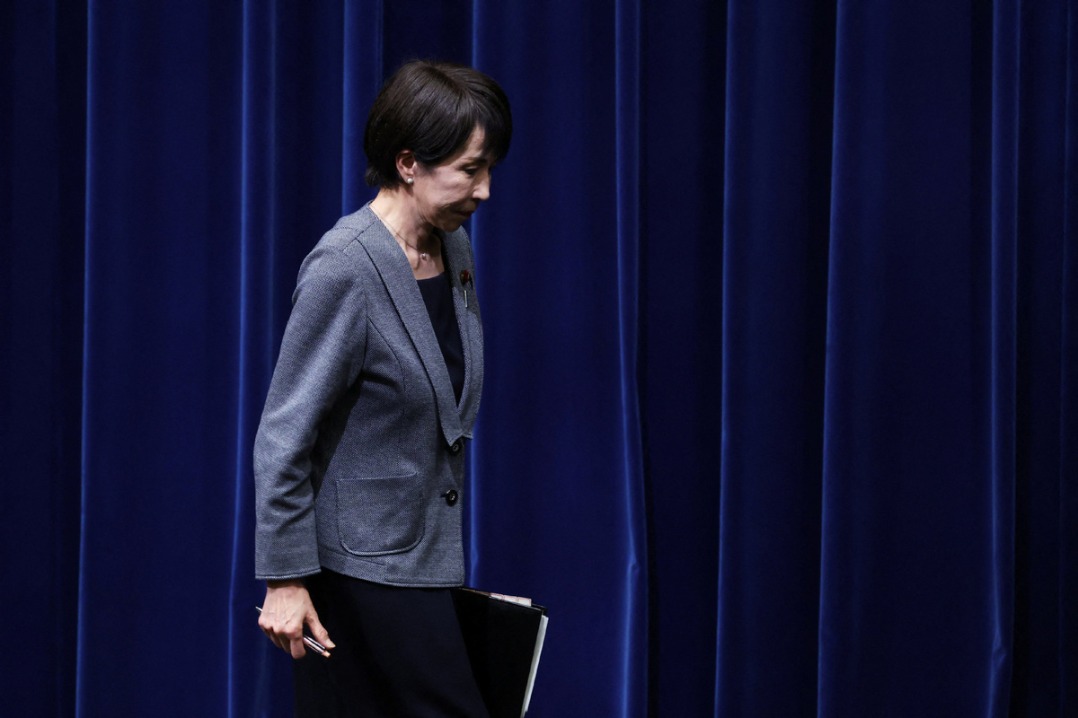By countering reunification, Tsai shoots herself in the foot


President Xi Jinping delivered a speech on Jan 2 to commemorate the 40th anniversary of the Message to Taiwan Compatriots, which was widely welcomed by people on both sides of the Taiwan Straits. The emphasis of Xi's speech was on the integrated development of the Chinese mainland and the island, and the peaceful reunification of Taiwan with the motherland under the "one country, two systems" principle, which compatriots in Taiwan have supported.
While leaders of some political parties and social groups, as well as ordinary residents on the island have expressed their desire to visit the mainland for consultations to facilitate the national reunification process, Tsai Ing-wen, the island's "pro-independent" leader, and her ruling Democratic Progressive Party devised a counter-plan against national reunification.
First, the DPP and the Tsai administration want to have a greater say in cross-Straits relations. After Xi's speech, the New Party, which supports national reunification, said its officials were ready to visit the mainland for political consultations. And Kuomintang said that, if it won the island's election next year, it would like to sign a peace agreement with Beijing to ensure permanent peace across the Straits.
Given that the DPP believes it derives benefits from "pro-independence" and separatist forces on the island, it fears that it might lose its supporters and voters if those who support consultations on reunification with mainland officials will have a bigger say in the island's politics. That's why the DPP is opposing the "one country, two systems" formula and intimidating any person or organization in favor of peaceful reunification or fruitful cross-Straits ties.
Second, Tsai wants to use her political leverage to gain votes in the island's elections-the primary election for the DPP's leadership in April and the island leader's election in January 2020. Which is not surprising given that the DPP is smarting from the crushing defeat in the local elections in 2018. And Tsai and her colleagues know the DPP cannot afford to lose another election.
Third, the Tsai administration may keep portraying Beijing as an imaginary enemy of the island and use it as a ploy to win future elections. The problem is that the DPP is good at conjuring up tricks to win elections but bad at running a government and improving people's livelihoods. So in its desperation to hold on to power it is trying to pull a trick on the voters by telling them that the island would lose its "sovereignty", "democracy" and "security" after national reunification under the "one country, two systems" principle.
That's why, despite the Taiwan compatriots welcoming the Jan 2 speech, Tsai decided to use it to play the "mainland card" to further strain cross-Straits relations. Since she has not acknowledged the 1992 Consensus that there is only one China, it is not difficult for her to falsely claim that Taiwan residents don't want national reunification under the "one country, two systems" principle.
Besides, Chen Ming-tong, the island's official in charge of mainland affairs, even threatened New Party Chairman Yok Mu-ming that he would modify the Act Governing Relations between the People of Taiwan Area and the Mainland Area to punish anyone who supports cross-Straits political consultation.
But while the DPP's evil designs failed to produce results, the call to intensify the integrated development of the two sides and explore ways of peaceful reunification under the "one country, two systems" formula has grown louder drowning out the voice of island separatists. Unable to accept her failure, Tsai launched a counter-plan on March 11 against the "one country, two systems" principle, and in so doing she has further strained cross-Straits relations and heightened the risk of conflict, which would affect the island's economic development and hurt the well-being of Taiwan residents.
But voters familiar with the DPP's tricks know how to shut out such distractions during elections. Which means the DPP's support to separatist forces cannot change the historical trend of peaceful national reunification.
The author is a professor at the Institute of Taiwan Studies, Beijing Union University.


































